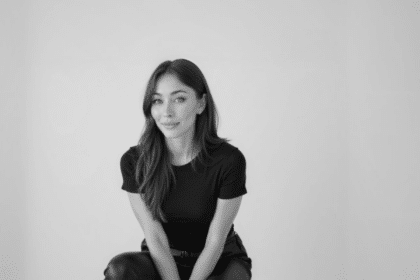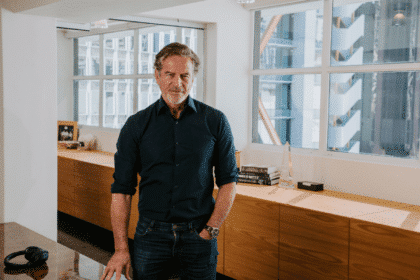When U.S.-based experiential marketing powerhouse Opus Agency announced its acquisition of The Company We Keep (CWK), the news sent a clear signal: the future of brand experience is borderless, and APAC is at the centre of it.
But behind the headlines is a story of shared vision, timing, and cultural alignment that both Dena Lowery, President of Opus Agency, and Nigel Ruffell, founder and CEO of The CWK, describe as “almost inevitable.”
In an exclusive chat during Dena’s whirlwind visit to Australia, the two leaders opened up about what drove the acquisition, what it means for their teams, and how they plan to shape the future of events and experiences—together.
“It was sort of a natural next step in in our global growth,” Lowery explained. “What we found is that as our clients come to the table with opportunities, they were thinking globally. So they are coming to the table and saying can you help us in Dubai, in London, in Singapore or in Sydney. So we started to look at how we service our clients in that way and we began to look for companies that that meshed with us and that mirrored us”.
“There are so many synergies between CWK and Opus from the employee-first perspective to client relationships,” Lowery explained.
The alignment was evident from the first conversation for Ruffell, who founded The CWK with a vision to push creative boundaries and build enduring client relationships.
“We were working with clients who were asking if we had the capability to operate in the U.S., if we had a physical presence there, and things like that. It made us realise we needed to explore this opportunity and think about our next steps for growth. We’ve grown significantly over the past six years, so what’s the next move?,” Ruffell explained.
“The synergy between clients, mindsets, culture, and perspectives made it a natural progression. It felt like the perfect next step”.
With Opus now operating in the U.S., Australia, Singapore, and New Zealand—alongside existing client relationships with Salesforce and TikTok—the combined agency offers scale without sacrificing local nuance. It also significantly boosts Opus’s capabilities in content, production, and film, areas where The CWK excels.
But it’s not just about clients. Both leaders spoke passionately about the opportunity this move creates for staff—more mobility, more global collaboration, and deeper investment in people-first culture.
“I think this will only benefit the team, which is actually one of the main reasons we began looking for a partner in the first place. We’re reaching a certain size now, and people have moved up within the company. The attrition rate has been very low, but it’s important to have opportunities for people to grow, not only within their current roles but also by experiencing other roles, regions, and markets. This helps keep them challenged and engaged,” Ruffell said.
“When we started talking to Opus, it was clear that, as a much larger agency with the same people-first ethos, it provided those opportunities. Even in the four weeks since we’ve combined, our team has already travelled to Nashville to meet with 10 other leaders from around the world as part of the extended leadership team. And I’m not just talking about the executives; I’m talking about the future leaders. They’ve already begun to benefit from the opportunities that have come from this collaboration”.
“I have 300 people in the U.S. saying, ‘I’ll go to Singapore. I’ll go to Australia.’ It’s very exciting for the U.S. team to have these opportunities, it provides global exposure for both our clients and team members,” Lowery explained.
“It’s about developing those leaders of the future. If we create an organisation where people know they can build a career, they’ll stay and share their talents. We both share that same goal: we’re here to build careers”.
When asked about what’s next for brand experience, both were aligned: clients want bolder thinking, seamless delivery across regions, and immersive storytelling grounded in purpose.
“As we were talking and getting to know each other, we realised we have multiple clients in common, which is fantastic. This means we can look at their brand holistically on a global scale, ensuring consistency and applying best practices across agencies and events as they move forward. But also, having local expertise allows us to tailor the approach,” Lowery explained.
“We can ask, ‘Is this culturally appropriate?’ Are we considering the local cultural nuances? This is where our expertise comes in, not just from the U.S., but from regions like Australia, New Zealand, and Asia Pacific. At the same time, we have the power to bring everything together on a global scale, ensuring consistency across the board”.
“From our perspective, what we’ve noticed in the last 12 months is that our clients are increasingly focused on the Asia Pacific region. It’s an emerging market for them, with some of the world’s largest cities and a lot of innovation coming from there. We have U.S. clients who have either already operated in the region or are looking to expand into it. One thing we’re very conscious of is that we can’t just be a U.S. company entering these markets without understanding the local dynamics,” Lowery said.
The CWK will transition to the Opus Agency brand in 2025. Until then, the focus is on integration, innovation, and elevating what’s already working.
And while the paperwork may be signed, for Dena and Nigel, it feels more like the beginning of something bigger.
“This isn’t just expansion—it’s amplification,” said Ruffell. “Together, we’re creating a new benchmark for what global brand experience can look like.”








